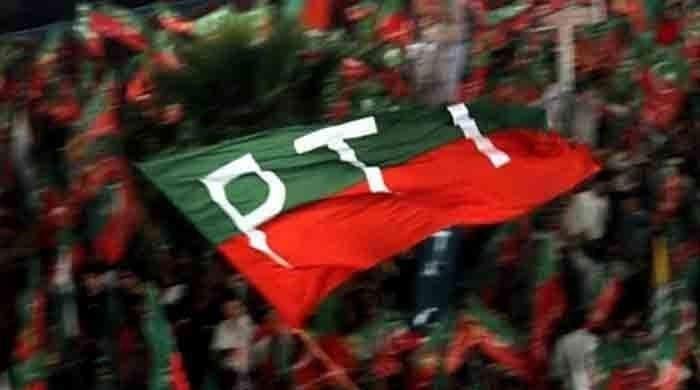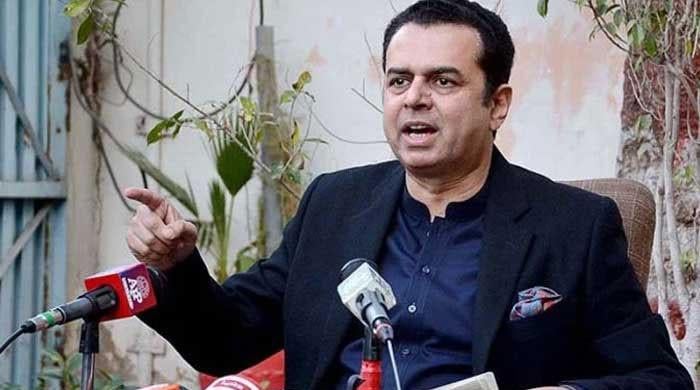UNHRC should urge India to immediately lift curfew in occupied Kashmir: FM Qureshi
India can once again resort to false-flag operations to divert international opinion, says FM Qureshi
September 10, 2019
GENEVA: Foreign Minister Shah Mehmood Qureshi on Tuesday said the UN Human Rights Council (UNHCR) should urge India to immediately lift the curfew and reverse the clampdown and communications blackout in occupied Kashmir.
Addressing the 42nd session of the Human Rights Council in Geneva on Tuesday, Qureshi said India should also be asked to stop the use of pellet guns, end the bloodshed and restore fundamental freedoms and liberties.
“India should release political prisoners, stop targeting human rights defenders and fulfil obligations under the UN Security Council resolutions and various human rights instruments,” Qureshi said, adding the Indian draconian emergency laws in occupied Kashmir cannot be allowed to stand.
The foreign minister urged the human rights council to take steps to bring to justice the perpetrators of human rights violations of the innocent Kashmiris and in this context constitute a commission of inquiry as recommended by the office of the UNHCR.
Qureshi further said if India has nothing to hide, it should allow unhindered access to the Commission of Inquiry. “Pakistan stands ready to allow access to the proposed Commission of Inquiry, or other mechanisms, on our side of the Line of Control; together with similar access to occupied Kashmir,” he asserted.
The foreign minister urged focused discussions on the two Reports of UNHCR, in the Human Rights Council (LoC) and a unanimous decision by this House to implement their recommendations made to India, Pakistan and foremost to the Human Rights Council.
“The human rights council should authorise the Office of the High Commissioner and the Human Rights Council's Special Procedures Mandate Holders, to monitor and report on India's human rights violations in IoK; and regularly update this Council,” Qureshi said.
He added India should be called upon to allow unhindered access to human rights organisations and international media to the occupied valley.
Voicing serious concerns over the situation in occupied Kashmir, Qureshi said we must not remain indifferent to the tragedy that is unfolding before our eyes. “We must act decisively and with conviction,” he noted.
The foreign minister said the people of occupied Kashmir have been waiting for their right to self-determination for seven decades.
Drawing attention towards the prevailing situation in occupied Kashmir, the foreign minister said the basic and inalienable human rights of Kashmiri people are being trampled with impunity by India. “The people of this occupied land are suffering systematic, and serial, violations of their fundamental freedoms,” he said.
“India has transformed occupied Kashmir into the largest prison on this planet, with virtually no access to basic amenities and means of communication over the last six weeks. Shops are running short of supplies, hospitals of life-saving medicines, and the sick and wounded — many of them due to the direct and indiscriminate use of force by the Indian occupation forces — are unable to access even emergency health services,” Qureshi added.
The foreign minister said over 6,000 people, political workers, activists, students and professionals have been arrested, without due process of law. “Many of them have been forcibly shipped to jails all over India, under draconian laws operative in the valley,” Qureshi said.
He added, independent and renowned international media outlets, as well as neutral observers, are regularly reporting horrendous atrocities against the people of occupied Kashmir.
He said the Kashmiri people in the occupied territory as a national, ethnic, racial and religious group of people face grave threats to their lives, way of living and livelihoods from a murderous, misogynistic, and xenophobic regime.
This the true face of the so-called largest democracy of the world, he said.
Qureshi said India's unilateral actions of August 5 of altering the status of occupied Kashmir recognised as a disputed territory by the UN Security Council, are illegal under international law. With these illegal changes, India's presence is, by its own yardstick, naked foreign occupation.
He said India's assertion that these actions are its "internal affair" is patently false. “Kashmir has been on the agenda of the United Nations for over 70 years now. The meeting of the Security Council on 16th August, to discuss the Jammu and Kashmir dispute, is an attestation of this fact,” he said.
The foreign minister said India's efforts to hide its atrocities by falsely labelling freedom movement in occupied Kashmir terrorism and cross border terrorism are shameless and indefensible.
Qureshi warned India can once again resort to false-flag operations and use the bogey of terrorism as a red herring, to divert international opinion.
Referring to increased Line of Control (LoC) violations, the foreign minister said New Delhi has used cluster ammunition and heavy artillery, in flagrant disregard of fundamental norms of international humanitarian law. This, he said, must end immediately. He said the reckless posture and draconian measures by India pose a grave threat to peace and security in nuclearised South Asia.
In his speech, FM Qureshi said that the Council should immediately take the following steps:
I) Urge India to immediately stop the use of pellet guns, end the bloodshed, lift the curfew, reverse the clampdown and communications blackout, restore fundamental freedoms and liberties, release political prisoners, stop targeting human rights defenders, and fulfill obligations under the United Nations Security Council Resolutions and various human rights instruments, as required by International Law. India’s draconian emergency laws in Occupied Jammu & Kashmir cannot be allowed to stand.
II) Take steps to bring to justice the perpetrators of human rights violations of the innocent Kashmiri people, and in this context, constitute a Commission of Inquiry, as recommended by the Office of the UN High Commissioner for Human Rights.
III) Authorise the Office of the High Commissioner, and the Human Rights Council’s Special Procedures Mandate Holders, to monitor and report on India’s human rights violations in Indian Occupied Jammu & Kashmir; and regularly update this Council.
IIII) Call upon India to allow unhindered access to Human Rights Organisations, and international media, to the Indian Occupied Jammu & Kashmir.
Qureshi meets WHO director-general
Earlier in the day, Qureshi met Director General WHO Dr Tedros on the sidelines of UN Human Rights Council meeting in Geneva and urged WHO to immediately take steps to save lives of hundreds of thousands of unarmed Kashmiris.
The Foreign Minister told the WHO director-general that food and medicines are not available to people in occupied Kashmir due to imposition of curfew thereby India since the fifth of the last month.
He said the medical staff is facing great difficulties to provide medical facilities to pregnant women, children and elderly people.
Qureshi added the grave situation in occupied Kashmir is indicating the emergence of a new humanitarian crisis.
He also met with Group of Ambassadors of Organisation of Islamic Cooperation at UNHCR and briefed them on the grave human rights violations and humanitarian emergency in the occupied valley.
The foreign minister also met with Amadou Ba Minister of Foreign Affairs and Senegalese Diaspora in Gevena today and sensitize him on the grave humanitarian tragedy in the making in the valley.
The foreign minister arrived in Geneva on a three-day visit on Monday where he was received by Special Representative of Prime Minister on Diplomatic Outreach Tehmina Janjua and other high officials.









